Meet the TRA Project Lead, Jana Gross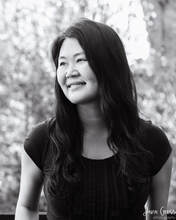 My name is Jana Gross and I am a transracial adoptee from South Korea. I was 2.5 years old when I was adopted, along with my older sister. We grew up in a small town in Minnesota with my older brother and parents. My adoption has affected me in different ways during my life and it hasn't been until the last year that I've connected with other adoptees on a deeper level and it has been a beautiful thing. I've lived in the Austin, TX area for the last 20+ years with my husband and 3 amazing daughters. As an artist and photographer, I get to create artwork for my clients of the most treasured people in their lives. It's so important to me to create heirloom portraits that capture the beauty of each person to be enjoyed by themselves and future generations. Meet Bo Schwabacher6/9/2022 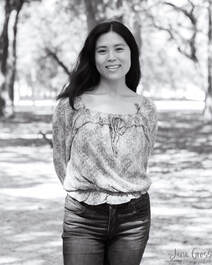 Q: Tell us a little about yourself, Bo. Bo: I am a South Korean adoptee. Born in South Korea, I was adopted at three-months-old. I grew up in Illinois. My poems have appeared in Cha, CutBank, Redivider, The Offing, Tupelo Quarterly, Zone 3, and others. Omma, Sea of Joy and Other Astrological Signs, published by Tinderbox Editions, is my debut collection of poems. Q: What do you wish people knew about being a transracial adoptee? Bo: As if I was still an infant waiting to be loved, I have wished to be seen and heard, but I couldn’t make the sounds, not even the cries, of my birth mother or my birth country. On my healing journey, connecting with other transnational adoptees has been extremely meaningful because I have found a community of people who see me. I wish people knew how valuable it is to create spaces for transracial adoptees to share our unique perspectives. I hope for more opportunities, such as fellowships, funding, and grants, for transracial adoptees to discover who we are, to be seen, and to tell our stories. Q: What kind of loss is associated with being a transracial adoptee? Bo: I was separated from my roots, which made it hard for me to develop a strong sense of self. I was adopted when I was three-months-old and raised in Illinois. I felt distanced from my birth mother, my birth country, and the Korean language. Growing up, I felt that it was too taboo for me to ask my adoptive family about my birth mother and Korea. In order to survive, I obscured my real self by denying my needs, emotions, and questions. Q: What perspectives did you gain by being a transracial adoptee? Bo: Being separated from my birth mother and my country of origin has helped me to understand others who have endured painful experiences and harbor a deep longing for love and safety. I often reflect on my birth mother’s life and the hardships she faced as a single, unwed woman living in poverty in South Korea. My birth mother died five years after giving birth to me. My heart goes out to babies, children, and women who have similar struggles and obstacles. I wish for us all to be liberated from abuse, violence, and oppression and to live joyfully. Meet Dianne Sonnenberg 6/8/2022 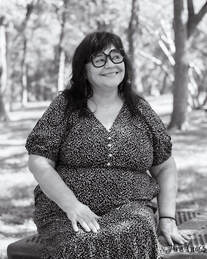 Q: Tell us a little about yourself, Dianne. Dianne: I was born in 1961. I am a First Nations/Dutch transracial adoptee from Canada. I lived for a year in a foster home before being adopted by a white family living in rural Michigan. I gained access to my adoption paperwork and non-identifying information in 2010 after my adoptive parents passed away. In 2013 I located my biological family when an internet search turned up a memoir written by my biological aunt. I have been in reunion with both sides of my family since then. Q: What do you wish people knew about being a transracial adoptee? Dianne: There was no support available for adoptees during the time I was growing up (that I was made aware of). My adoptive family treated me like I was a “blank slate”. I did know that I was First Nations (Native American) but my tribal affiliation was considered classified, and I wasn’t allowed to know. This caused me great sorrow as a child. The only time my race was acknowledged was during Halloween, when I was dressed up as “a little Indian girl (or Pocahontas)” for the holiday. Q: What kind of loss is associated with being a transracial adoptee? Dianne: For me, it is a loss of community, culture and a sense of knowing who you are, and your place in the world. It wasn’t until after I reunited with my biological family, and met members of my Ojibwe tribal community that I understood that so much of who I was as a person was intertwined with my heritage. I recognized elements of myself in my family and my community. I’ve begun learning more about my culture, and feel it is very much entwined with my “self”. I have begun to feel that I BELONG for the first time in my life. I deeply grieve the loss of not having these connections when I was younger. Q: What perspectives did you gain by being a transracial adoptee? Dianne: I have had the opportunity to more clearly recognize the connections with my kin, and my innate cultural knowledge, because I did not experience them until recently. Having grown up outside of my community, I have experienced most of my life as an “outsider”. I think having experienced both perspectives ultimately makes for a stronger life experience, greater wisdom, and as an artist, a richer palette from which to move forward. The great writer bell hooks wrote eloquently: “…it was love’s absence that let me know how much love mattered…We can never go back. I know that now. We can go forward. We can find the love our hearts long for, but not until we let go grief about the love we lost long ago, when we were little and had no voice to speak the hearts longing.” These words resonate very deeply with me and give me great hope for the future as I navigate my journey with open eyes and an open heart. Meet Trishtia Barndt6/7/2022 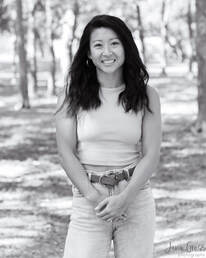 Q: Tell us a little about yourself, Trishtia. Trishtia: Hi, my name is Trishtia Barndt and I am a Korean American born in Seoul, South Korea. I was adopted at the age of 3 months by my parents. I grew up in Pennsylvania with an older sister, two younger brothers, and two younger sisters who were all adoptees as well. I am passionate about empowering others, I co-host a podcast called “The Soul Life Project, and I am not great at small talk. Q: What do you wish people knew about being a transracial adoptee? Trishtia: I want to start off by saying it is never too late to learn, heal, and forgive. In the last two years, I have dug deeper into my experience as a transracial adoptee, thanks to my husband's encouragement and asking the hard questions. Something I am still recognizing and hope more people understand is that adoption is first traumatic before it can be beautiful. When we acknowledge this, it leaves room for empathy, healing, and discovery. Q: What kind of loss is associated with being a transracial adoptee? Trishtia: A poet by the name of Mary Kim Arnold used the word “Internalized Silence” as part of her experience as a transracial adoptee. I have since been thinking about how this describes the loss associated with being a transracial adoptee. My adoptive family never intentionally tried to take away my Korean culture but it also was not celebrated or taught to me. I grew up never learning the language of my heritage. I really never saw the representation of other Korean or Asian people in my family, community, in my books, in my classroom, and even on TV. I once had a friend say “I forget you are Asian sometimes.” Until recently when asked about things like do you want to find your birth family, learn the language or learn how to cook Korean dishes, celebrate Korean holidays, or find other Korean/Asian friends my answer was always “not really.” This phrase internalized silence is why I think my answer was always “not really” I have internalized so deeply the silence of my Korean ethnicity and experience as a transracial Korean adoptee I didn’t even know it was something I wanted to connect with and explore. Connecting with other transracial Asian adoptees, watching Korean shows, visiting highly populated Asian places, and when my partner recognizes part of me as Korean, it has been so nurturing to my soul and something I never knew I needed. Q: What perspectives did you gain by being a transracial adoptee? Trishtia:: Empathy. Growing up as an Asian transracial adoptee in a homogenous white conservative town, with white parents and black brothers and sisters was an experience I have yet to share with someone. Everyone has a story and experiences that led them to believe in what they believe, which then led to action or maybe complacency. If we listen to understand and not respond, if we learn to empathize with a person’s experience even if we disagree or don’t understand, imagine what would change? Meet Triniti Rhum6/6/2022 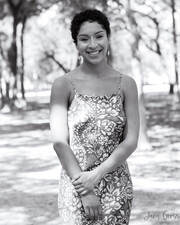 Q: Tell us a little bit about yourself, Triniti. Triniti: My name is Triniti Rhum and I am twenty years old. I was adopted from Medellín, Colombia, when I was four months old and was raised in Austin, Texas. Q: What do you wish people knew about being a transracial adoptee? Triniti: I wish people knew that being a transracial adoptee can feel as though you are living a double life and longing for a sense of connection that was once lost. I was adopted from Colombia when I was four months old and was brought to the United States, and I have been here for twenty years. Growing up I often felt as though I did not belong. I didn't see many faces that resembled me. As I entered my adolescent years, I became eager to learn about where I originate, the culture within Colombia, in hopes I can get my questions answered about my birth family. As I have been on the journey to connect more with my birth family I began to fear that my American heritage will overrule my Colombian roots, and that I won’t be able to fully connect with them in the ways I imagined. This fear of rejection is common within the transracial adoptee community. We often fear that because we were not fully immersed in the culture that we derived from we will never be truly accepted. During the human experience, it is natural for one to be curious about their identity but this curiosity can oftentimes feel tricky for the transracial adoptee. As more and more transracial adoptees grow up and begin to discover themselves, I hope society can understand the reason why many transracial adoptees are hesitant to learn more or even connect with their birth families. Every transracial adoptee is unique, but what we all have in common is the disconnection from a culture that can be millions of miles away. How we choose to go about our adoption is the adoptee's choice and no one else's. Q: What kind of loss is associated with being a transracial adoptee? Triniti: Loss is a common theme that plays a role throughout a transracial adoptee's life and can affect different parts of their life in different ways. From my experience as a transracial adoptee, I feel that the biggest losses that can affect us are the loss of connection to birth families, loss of culture, and loss of identity. Growing up in a predominantly white area I felt as though I never fit in. Many of my fellow classmates had blue eyes, fair skin, and long straight hair. Being a young girl from Colombia I didn't fit the Eurocentric beauty standard and oftentimes felt less than my peers. This caused me to try to assimilate to fit the standards by straightening my hair and following the trends the other girls set at my school. Growing up in this kind of limiting environment made me feel that my cultural differences were not unique and beautiful. Instead, I felt different and left out which caused me to lose a sense of identity. As some transracial adoptees have questions regarding their ethnic background, often we cannot further explore our ethnic DNA due to missing information on our birth certificates. This can translate as another loss for the transracial adoptee. Q: What perspectives did you gain by being a transracial adoptee? Triniti: After telling different people throughout my life that I was adopted I was often told, “Wow, you must be so lucky.” A new perspective on this idea has altered my way of thinking. I gained the perspective that I can be grateful for what I have and still experience feelings of loss and sadness. There is a narrative where the transracial adoptee is told that they should be lucky for what they now have because they are put into a more stable situation. The lucky narrative not only neglects the loss and pain the adoptee has experienced but also doesn't allow space for the adoptee to experience their authentic emotions. This narrative also allows adoptees to believe that their birth family is "less than" because of their inability to care for them. The lucky narrative is harmful to adoptees by limiting their emotions and telling them how they should feel about a very complex experience. It is vital that as a society we understand the depths of adoption and how transracial adoptees are not always deemed as “lucky” individuals. As non-adoptees come across transracial adoptees it is vital that we hold space for transracial adoptees to tell their stories authentically. A Message from Jana Gross, Project lead"It has been a pleasure getting to know each one of you and your personal journeys as transracial adoptees while working on this project together. Each of your stories has given me more insight into the diversity of adoptee experiences and helped me on my personal adoption journey. Thank you for generously sharing a piece of your story for this project to help other adoptees better understand themselves, and to help educate the broader community. A very special thank you to you, Trishtia Barndt, for the time you spent collaborating with me on the questions for the project. 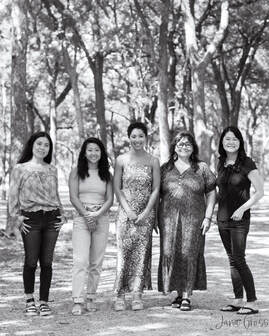 There is no way that this project could have happened without the generosity of those sharing their stories. A heartfelt thank you to everyone who chose to participate in this project and elevate their voice to educate, support, and connect our community. Triniti Rhum Trishtia Barndt Dianne Sonnenberg Bo Schwabacher Healing happens and hearts and minds are changed when adoptee voices are heard and understood in our community and beyond. Thanks to everyone who took the time to listen and learn about the complexities of transracial adoptee experiences. If you are an adoptee, specifically a transracial adoptee, that gained support from hearing other's stories, we are glad you found us! A huge, heartfelt thank you to Jana Gross, of Jana Gross Photography! You gave so much of your time and attention to this meaningful project. The board and staff of AKA is so appreciative of your vision, collaboration, and execution of the "Elevating Transracial Adoptee Voices Project." Thank you also to Trishtia for the extra time you gave during this project's development.
0 Comments
Leave a Reply. |
Back to Main BlogNewsletter ArchivesBlog Archive
July 2024
Categories |
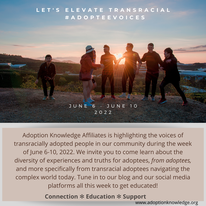
 RSS Feed
RSS Feed